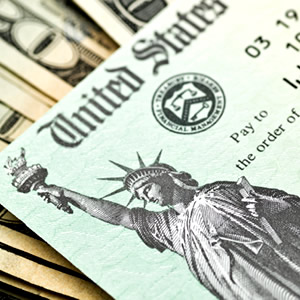Dear Scott,
I receive your newsletter and love it. Very helpful!
Recently, I have taken out a debt consolidation loan. The time from application for the loan to closing on the loan was 3 months. The consolidation loan included preprinted checks made out to each of my creditors (5) with the total balance owed at the application time.
The problem was that during the 3 months before closing, I had been paying the minimum payment. So, when the loan closed and the checks were issued, the check amount was higher than the actual balance.
I have received credit checks from all but one of the creditors for the difference. I have sent 2 letters to the customer service address requesting the account be closed and a check be issued.
It has been 2 months with no response from the creditor. I have received 2 statements showing the credit. What is the next step to getting the money back?
They owe me $179.00; too much money to walk away from. What is very upsetting to me is that, if I owed them money, I would have to pay late fees, interest and get marks on my credit report.
Sincerely,
Aimee
Aimee,
Thanks for writing! I love your attitude!
They should be required to pay you a late fee! I doubt that will ever happen, but maybe someday a law can be added to the books that would require late fees due the consumer in this situation.
I certainly have been in similar situations. By making an overpayment to any creditor, you create a credit balance. That credit balance must be returned to you. You asked for a check twice, and they haven’t sent it.
Here’s what I would do…
1) I’d call and speak to a customer service rep to see what’s going on with the check. Maybe they sent it and the “check is in the mail.”
2) If I still didn’t receive the check, I’d use the credit card for my normal shopping, groceries, etc. Once I spent $179, I’d stop. If I went over $179, I’d pay them the difference and never use the card again.
3) Here’s a technique you can try if you don’t mind more hassle. I would do it because I’m also interested in finding out the results of creative financial techniques and telling everyone what happened. If I had credit checks issued on that credit line, I’d write myself a check for $179 and deposit it into my personal checking account.
There a few possible complications with this plan: The first is if they have already sent you a check for $179, then it would be a cash advance and subject to cash advance fees.
The second complication would be that even if they haven’t issued you the check, they may still try to charge you a cash advance fee, even though it’s your money! In fact, I bet they would charge you the fee. After writing the check, if I received a statement that the $179 brings my balance to zero, but I had a balance because they charged me a cash advance fee, I’d call the bank and ask to have the fee waived. They’d probably argue and say it’s still a cash advance to which I would reply, “It’s not an ‘advance’ against my credit line because it’s not a loan, it’s my own money!” If they still didn’t waive the fee, I’d formally dispute the charge. I don’t know if you want to make a mountain out of a molehill; however, it is an option.
4) Same as (3) but use the card at an ATM or do a cash-advance at a bank.
Please let me know the outcome of your situation–thanks!
Regards,
Scott

